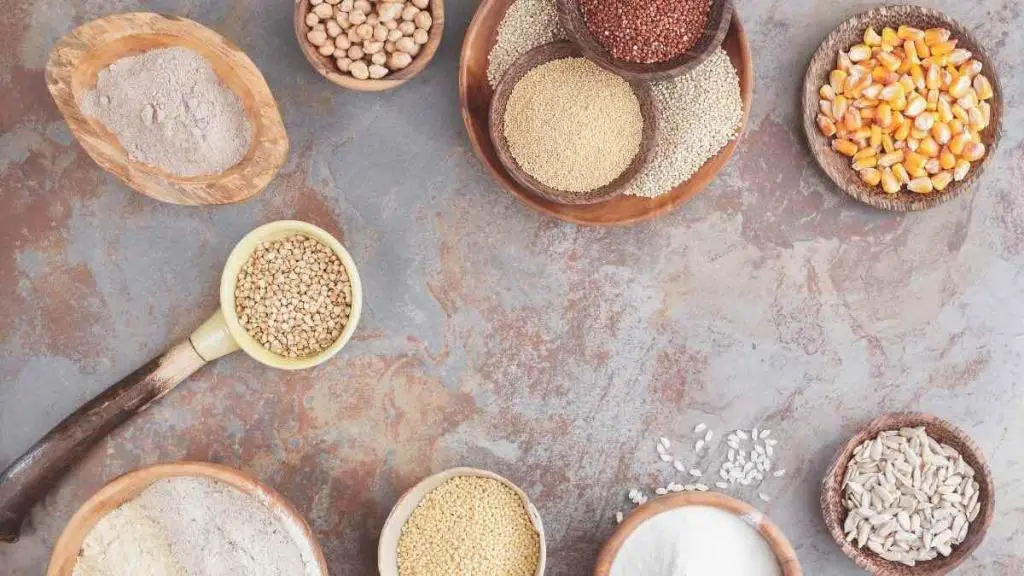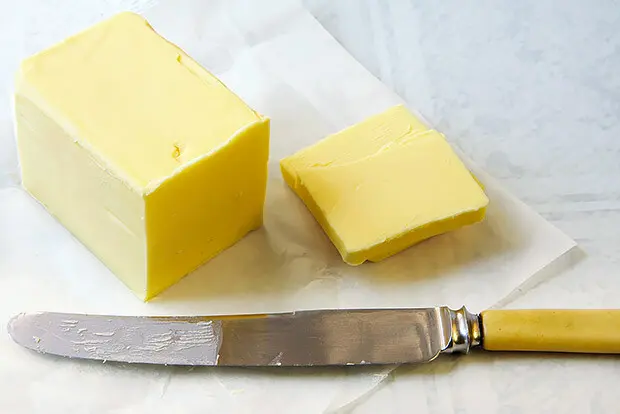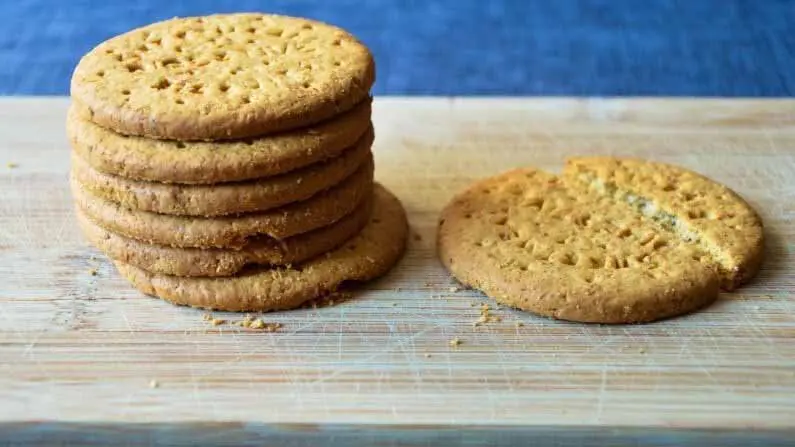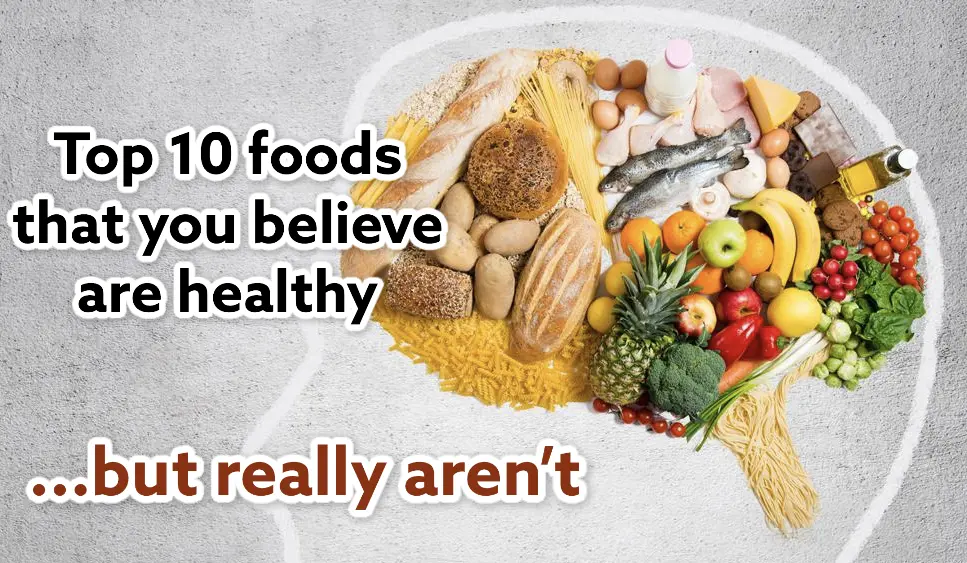The one trend everyone tries to follow is healthy eating, but are we really eating the right food?
We have all heard of good foods and bad foods, but there are certainly some food items that you think provide health benefits when in reality they don’t.
Foods labeled as “healthy”, “diet-food”, “sugar-free”, “cholesterol-free” and “low fat” are nothing but mere labels. In fact, these so-called healthy foods are actually disguised with an immense amount of preservatives, sugars and oils.
As healthy foods become a growing trend, groceries and brands are constantly convincing us to buy their “healthy gluten-free products” but it’s our duty to look beyond the labels.
Here’s a list of the top 10 unhealthy foods that are disguised as healthy:
1. Milk with malted drink powders
Malted drinks such as Bournvita, Complan, Milo and Horlicks is every kid’s favorite drink. They claim to be “sugar-free” but if you carefully look at the nutritional value, you’ll find that they are actually artificial sweeteners. See the nutritional value at the back of the product, and it will show that approximately 50% of the content is nothing but sugar. Kids love the sweetness of malted drinks, but unknowingly it is creating adverse effects on their body as it stops the growth of good bacteria and is slowly harming their gut health. Unless the gut is strong, immunity won’t be strong.
These malted drink powders are highly processed and filled with maltodextrin, which is a white starchy powder made from corn, rice or potato starch. It affects the body by constantly spiking your insulin level and suppresses the growth of good bacteria.
To substitute malted powders, you could have Kesar, dates, jaggery or turmeric milk. As a healthier option, you could also try making dry fruits powder and have it with warm milk. Try to habituate your child with natural substitutes for sugar instead of appealing them with chocolate powders.
2. Multi-grain flour

Nowadays, multi-grain atta (flour) is found in almost every kitchen. Mixing various grains together such as jowar, bajra, ragi, besan and even quinoa creates an immensely high fiber atta which is problematic. Excess of fibers causes failure to absorb essential micronutrients such as zinc, calcium, or iron, and instead completely flushes them out of the body.
My advice would be to have one atta at a time. Rather than multi-grain, consuming one type of flour will allow your body to completely absorb the enzymes and nutrients that each atta has to offer. For example, ragi is rich in calcium so have it with wheat or have only jowar with wheat so the ratio of 70:30 is maintained. 70% should be the chosen millet flour of your choice and 30% wheat, so the nutrients can be easily absorbed and will keep you satisfied longer.
3. Fruit juices
I know what you are thinking – how can fruit juices be bad for me?
Unfortunately, packaged fruit drinks are a big NO. They claim to be “natural with no additional flavors” but the nutritional value proves otherwise. Packaged fruit juices are filled with sugar and harmful preservatives. Do not expect any real fruit content in them.
It is true that fresh fruit juices are better, but they should be avoided too. When we blend the fruits to make juice, the majority of the nutrition gets lost and the result is not a nutritious drink but rather an energy drink that acts as a short-term insulin booster. In order to fully absorb the nutrients from fruits, chewing the whole raw fruit would be advisable.
4. Artificial sweeteners
Another unhealthy item masqueraded as healthy is artificial sweeteners. Aspartame, sucrose and saccharin are a few of them that we intake with many products these days. They are great at confusing our digestive system. The role of sugar is to release glucose, which will mix with our blood and message the pancreas to do its job.
However, when we consume artificial sweeteners as a substitute for sugar, it confuses our system, and our pancreas receives an unclear message about what to do. In the long term, this leads to an improper functioning of the pancreas and as a result, increases your sugar craving!
While they may sound harmless, artificial sweeteners work in the same way as malted drinks by flushing the good bacteria out of the guts and could affect our immunity, brain functioning and even lead to cancer.
5. Low cholesterol butter

Low-fat foods aren’t necessarily the best option. Butter and ghee products that market themselves as low fat or low cholesterol may seem healthy, but in reality they are filled with high amounts of sodium which can affect blood pressure and heart functioning.
Along with high sodium, it can also have hidden trans fats, which our body does not require at all as it affects fat metabolism adversely.
Instead homemade butter or ghee is advisable. Homemade saturated fats contain short-chain fatty acid, which works to improve fat metabolism.
6. Gluten-free foods
Gluten-free foods are almost as harmful as gluten foods. Gluten-free pasta, noodles or flakes may seem like a healthy option but not to forget they are filled with unnecessary starchy content, chemicals, and preservatives. Consuming high amounts of processed gluten-free foods affects the gut health negatively and are in fact just empty calories. Instead, try reaching for a whole fruit like an apple with a handful of nuts or boiled eggs to benefit from a mix of healthy fats, proteins and carbohydrates.
Also, lack of time and laziness causes us to take shortcuts towards our food and leads to problems. Once in a time gluten-free pasta or food is okay, but make sure that you don’t make it a part of your lifestyle unless you have been detected with some sort of intolerance.
7. Vegetable oils
If you think substituting refined oil with vegetable oil is a better option, then this might surprise you. One of my clients told me he uses a “diabetic friendly oil” but just because it has “diabetic friendly” or “heart-friendly” in its name, does not mean that it is good for you. It is nothing but a fancier name for a type of refined oil that has almost no nutritional value.
Highly processed vegetable oils contain polyunsaturated fatty acids, which means it has high amounts of Omega-6. Excess of this can disturb cell communication in the body and lead to hormonal issues. This happens because our body requires a balance between omega-3 and Omega 6.
To maintain this balance, use desi ghee, coconut oil, sesame, mustard oil or even extra virgin olive oil.
8. Microwaveable popcorn
On the surface level, microwaveable popcorn seems like a healthy go-to snack because of its low-calorie intake. But when you look at the nutritional aspect, you will find that these popcorns have high sodium content and trans fats which slows our fat metabolism creating weight-related problems.
As a healthier alternative, try having foxnuts also known as “makhanas”. However, remember to check the nutritional content for high sodium before buying them. To get the full nutrition of a high fiber snack, you could also make makhana at home! All you need to do is roast them with a little ghee and a spice flavor of your choice.
9. Energy bars and biscuits

Once and for all, just because it’s labeled as “energy” bars doesn’t mean it is necessarily good for you. They contain high fructose corn syrup and hydrogenated oils. Not to mention, the high quantity of preservatives found in these so-called “sugarless” bars and biscuits only proves to harm gut health by increasing inflammation.
You may think that digestive biscuits are a healthy snack but in reality, they made from refined flour which is not good for our body as it cannot absorb the vital micronutrients that we need.
For a more nutritional snack, you can try making oats or coconut and sesame ladoo at home. Even though it may seem like a tedious job, I promise you that it will provide long-term benefits and help you lead a healthy life.
10. Ready-made soups and salads
When you are really busy or tired, ready-made salad or soup may sound like the healthiest option. Not to mention they are nothing but high amounts of sodium and other preservatives disguised as healthy food.
In the name of healthy salads, unfortunately those salad dressings have sugar and unhealthy fats. While you think you are having low-fat salad, you are unknowingly raising bad cholesterol instead of good cholesterol.
Final words…
Now you know the foods labeled as healthy come with an additional burden of hidden sodium content or disguised sugar.
My advice would be to eat as much homemade food as possible. Otherwise, check the nutritional content and reduce the dependency on unhealthy food.
Most of the time, these so-called healthy foods do not deserve the health halo that everyone gives them. So, please be aware of the overall nutritional value of food and don’t blindly follow the “labels.”
Have a healthy journey ahead!


I m a mum of 3kids via ceserian…I weigh58kg n my hght is4.10…i have no medical issues..my cycles r regular.. I can’t exercise lil also…still I wan to reduce wght
I drink bournvita in the morning as my vitamin B12 is very less. Less than 20. I am vegetarian so naturally I don’t get any vitamin B12.
Is there any natural substitute.?
Thank You
Bournvita is the worst. Its nothing but sugar. Source Vit B12 from root vegetables like sweet potato, carrots and Iron rich foods – raisin, figs. Last option is supplements (temporarily) if you are extremely deficient.
Hi. My 7 yrs daughter is recently diagnosed with ibd (colitis). I have heard that duet can do the magic in healing this disease and makes her drug free. I am trying to start scd (special carbohydrates diet ), but i am confused whether she will get the necessary calories or not.
Hi Gurwinder, working on the root cause with the help of a balanced diet and lifestyle modifications can certainly do wonders to treat diseases like IBD. It is not advised to follow a restrictive diet like SCD or anything, this may worsen the situation. It’s best to start with gut-friendly foods and habits first. For personalised consultations, you can visit, https://santushtibylavleen.com/how-we-work/ and for inquiries, Whatsapp us at https://wa.me/919872617668
I make multigrain aata in which I mix wheat,black chana,oats, jowar,ragi,jau,flex seeds, amaranth,pumpkin seeds …I know you recommend one aata at a time but being diabetic and for kids healthy I thought to mix everything ..plz advice should I continue with it
It’s amazing how what we eat can have such a profound impact on our gut health and overall well-being. Thanks for sharing!